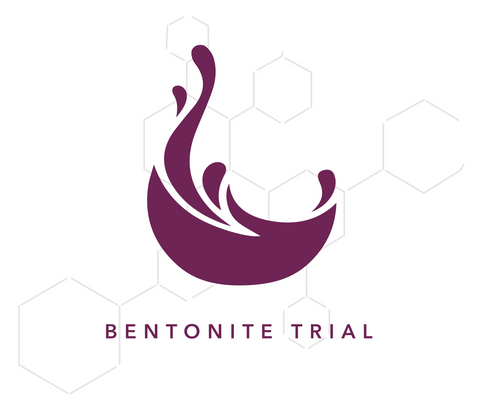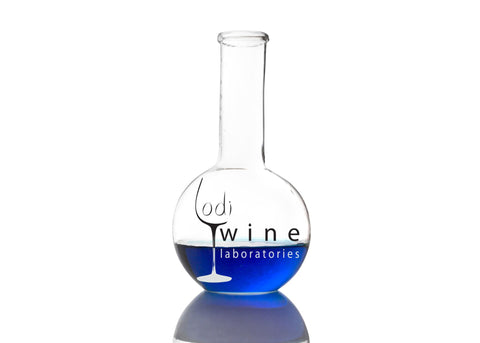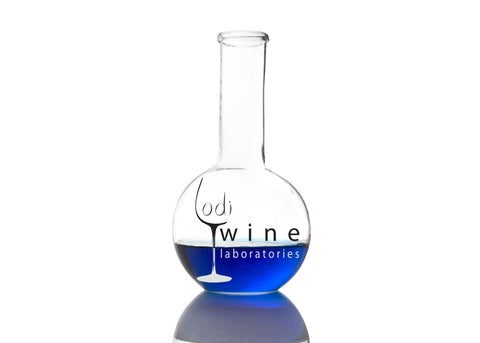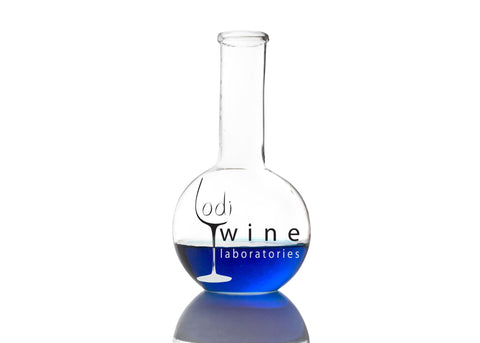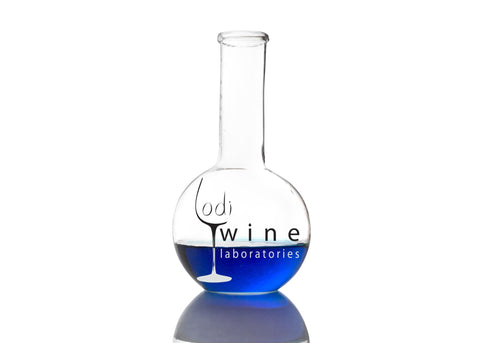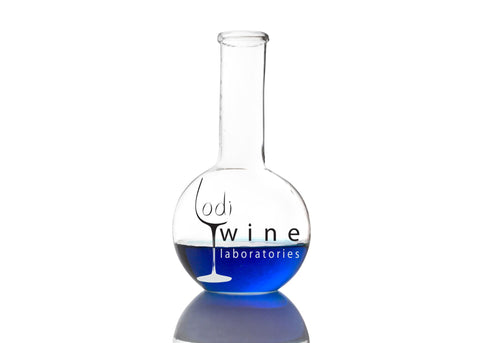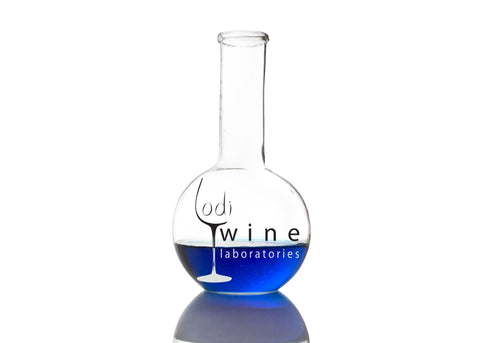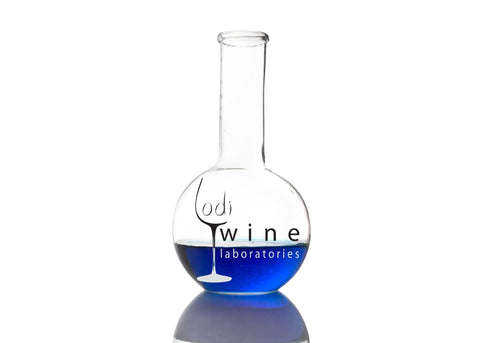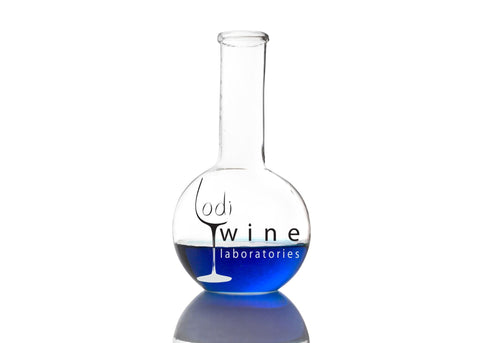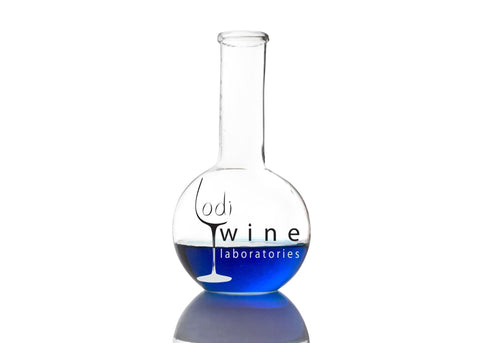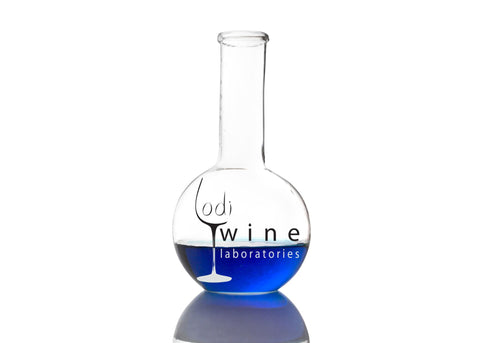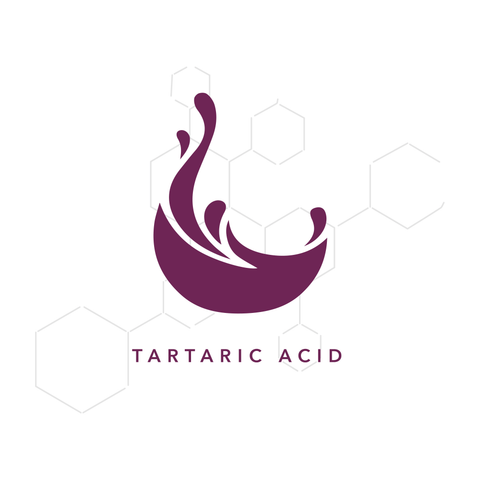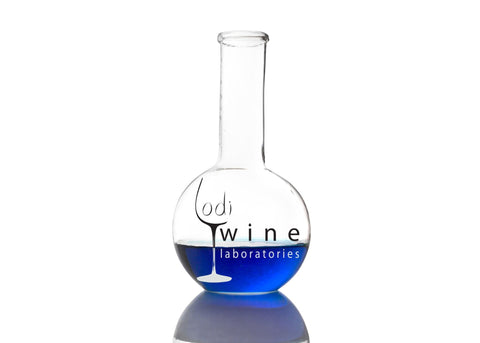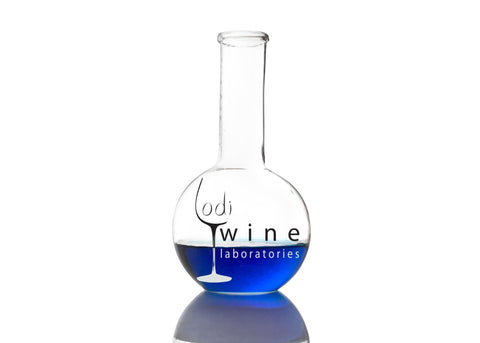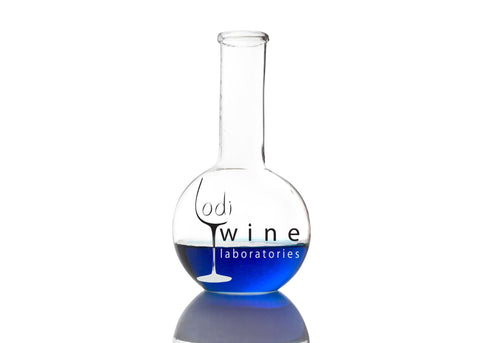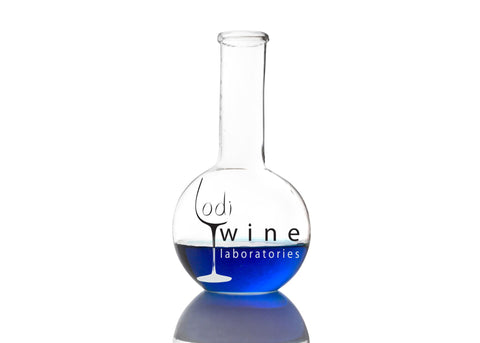Analysis
Please Note
-
Bentonite Fining Trial
- Incubation + Turbidimeter
- |
- 2 business days
- |
- 375 mL
$85.00
Visit product page →A Bentonite Trial is a highly effective method to develop a heat stable product. It is designed to determine the appropriate addition of bentonite for removal of proteins that can cause a visible haze or flocculation. Several addition rates are made followed by a heat stability test of the treated samples. These results will identify the lowest addition rate of bentonite that will be required to heat stabilize the wine.
Minimum Volume Required: 375mL
Includes
Bentonite Trial
(Units: NTU, Technique: Incubation + TurbidimeterNote : We use KWK Bentonite in dosage rates of 2#, 4#, 6#, 8# and 10# for standard heat stability trials.
If you are using a different bentonite, please send 10 grams with your sample for lab preparation of the slurry.
If you would like a specific range of dosage rates, please note this on the sample label.
-
CMC Panel
- Conductivity
- |
- 2-3 days
- |
- 750 mL
$150.00
Visit product page →A carboxymethylcellulose (CMC) Panel is a highly effective method to develop a cold stable product. It is designed to determine the proper addition of CMC to inhibit tartrate crystallization. Initial cold stability testing is performed followed by suitable addition rates to identify the lowest addition rate that is considered acceptable.
Minimum Volume Required: 750mL
Includes
CMC Panel, including heat stability of treated samples
(Units: uS, NTU; Technique: Conductivity, Incubation + Turbidimeter)Note : Lodi Wine Labs uses Celstab for standard cold stability trials.
If you are using a different product for cold stabilization, please send 50mL with your sample for lab use.
If you would like a specific range of dosage rates, please note this on the sample label.
-
Cold Stability - Freeze/Thaw
- Visual
- |
- 72 hours
- |
- 120 mL
$20.00
Visit product page →This test involves 0.45 micron filtration of a sample followed by freezing for 24 hours. The solution is then thawed prior to inspecting for any crystalline tartrate precipitation. If no crystalline tartrate deposits are observed, it is considered cold-stable and expressed as a "pass."
Minimum Volume Required: 120mL
IncludesCold Stability
(Units: Pass/Fail, Technique: Visual) -
Cold Stability - UC Davis Modified Mini Contact
- Conductivity
- |
- 24 hours
- |
- 120 mL
$42.00
Visit product page →The UC Davis Modified Mini Contact is a test that measures the change of conductivity over a 30-minute period at a test temperature of zero degrees Celsius. Wines are generally considered cold stable with a conductivity drop of <3%.
Minimum Volume Required: 120mL
Includes
Cold Stability
(Units: uS, Technique: Conductivity) -
Fining Trial
- Sensory
- |
- Various
- |
- 750 mL
$80.00
Visit product page →Before using a fining product, it is common to conduct a trial to maximize the effect of the product and ensure the proper addition rate. Various addition rates are made here in the lab followed by sensory evaluation and recommendation.
Minimum Volume Required: Varied, at least 750mL
Includes
Fining trial and recommendation
(Various methods) -
Free & Total Sulfur Dioxide (SO2) - Sequential Analyzer
- Sequential Analyzer
- |
- 24 hours
- |
- 50 mL
$38.00
Visit product page →Sulfur dioxide is used to manage microbial stability and to prevent oxidation. The measurement of free sulfur dioxide is used to determine the amount of SO2 that is not bound to other compounds in juice and wine. The measurement of total SO2 is the determination of both the free and bound forms of SO2 in juice and wine.
Minimum Volume Required: 50mL
Includes
Free and Total Sulfur Dioxide (SO2)
(Units: mg/L, Technique: Sequential Analyzer) -
Free Sulfur Dioxide (SO2) - Aeration/Oxidation
- Aeration Oxidation
- |
- 24 hours
- |
- 50 mL
$35.00
Visit product page →Sulfur dioxide is used to manage microbial stability and to prevent oxidation. The measurement of free sulfur dioxide is used to determine the amount of SO2 that is not bound to other compounds in juice and wine.
Minimum Volume Required: 50mL
Includes
Free Sulfur Dioxide (SO2)
(Units: mg/L, Technique: Aeration/Oxidation) -
Free Sulfur Dioxide (SO2) - Ripper
- Ripper
- |
- 24 -48 hours
- |
- 50 mL
$50.00
Visit product page →Sulfur dioxide is used to manage microbial stability and to prevent oxidation. The measurement of free sulfur dioxide is used to determine the amount of SO2 that is not bound to other compounds in juice and wine.
Minimum Volume Required: 50mL
Includes
Free Sulfur Dioxide (SO2)
(Units: mg/L, Technique: Ripper) -
Free Sulfur Dioxide (SO2) - Sequential Analyzer
- Sequential Analyzer
- |
- 24 hours
- |
- 50 mL
$19.00
Visit product page →Sulfur dioxide is used to manage microbial stability and to prevent oxidation. The measurement of free sulfur dioxide is used to determine the amount of SO2 that is not bound to other compounds in juice and wine.
Minimum Volume Required: 50mL
Includes
Free Sulfur Dioxide (SO2)
(Units: mg/L, Technique: Sequential Analyzer) -
Heat Stability
- Manual
- |
- 24 hours
- |
- 50 mL
$24.00
Visit product page →A heat stability test is used to measure the potential for proteins in wine to degrade at higher temperatures. Protein degradation is visible in wine as haze or flocculation.
Minimum Volume Required: 50mL
Includes
Heat Stability
(Units: NTU, Technique: Turbidimetry) -
Sorbic Acid
- Distillation / Spectroscopy
- |
- 24 hours
- |
- 50 mL
$35.00
Visit product page →Sorbic acid is used as a yeast inhibitor due to its antimicrobial properties. Testing for sorbic acid is often required for export.
Minimum Volume Required: 50mL
Includes
Sorbic Acid
(Units: mg/L, Technique: Distillation/Spectroscopy) -
Tartaric Acid Trial
- Incubation + Turbidimeter
- |
- 2 business days
- |
- 375 mL
$85.00
-
Total Sulfur Dioxide (SO2) - Aeration/Oxidation
- Aeration Oxidation
- |
- 24 hours
- |
- 50 mL
$35.00
Visit product page →Sulfur dioxide is used to manage microbial stability and to prevent oxidation. The measurement of total SO2 is the determination of both the free and bound forms of SO2 in juice and wine.
Minimum Volume Required: 50mL
Includes
Total Sulfur Dioxide (SO2)
(Units: mg/L, Technique: Aeration/Oxidation) -
Total Sulfur Dioxide (SO2) - Ripper
- Ripper
- |
- 2 days
- |
- 50 mL
$40.00
Visit product page →Sulfur dioxide is used to manage microbial stability and to prevent oxidation. The measurement of total SO2 is the determination of both the free and bound forms of SO2 in juice and wine.
Minimum Volume Required: 50mL
Includes
Total Sulfur Dioxide (SO2)
(Units: mg/L, Technique: Ripper) -
Total Sulfur Dioxide (SO2) - Sequential Analyzer
- Sequential Analyzer
- |
- 24 hours
- |
- 50 mL
$19.00
Visit product page →Sulfur dioxide is used to manage microbial stability and to prevent oxidation. The measurement of total SO2 is the determination of both the free and bound forms of SO2 in juice and wine.
Minimum Volume Required: 50mL
Includes
Total Sulfur Dioxide (SO2)
(Units: mg/L, Technique: Sequential Analyzer) -
Turbidity
- Turbidimetry
- |
- 24 hours
- |
- 50 mL
$20.00
Visit product page →The measurement of the clarity of a wine or juice. Turbidity measurements can be used to determine the need for fining or filtration.
Minimum Volume Required: 50mL
IncludesTurbidity
(Units: NTU, Technique: Turbidimetry)

